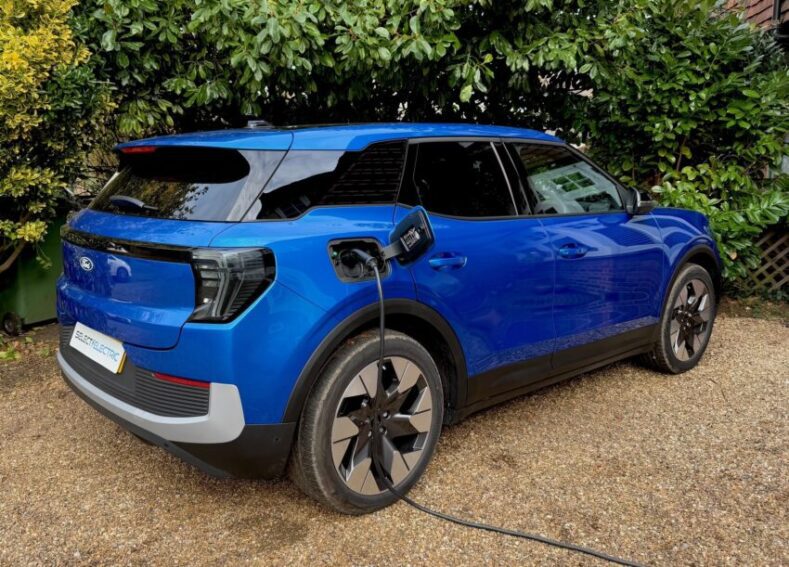
How AI and IoT Are Powering EV Growth and Smart Infrastructure
The rapid adoption of electric vehicles (EVs) is changing the way we think about transport, but behind the scenes, another revolution is making this transition smoother and more efficient.
Companies are using artificial intelligence (AI) and the Internet of Things (IoT) to accelerate EV usage, improve infrastructure, and reshape industries beyond just automotive. So, what does this mean for the future, and how is IoT technology transforming our world?
AI and IoT: The Perfect Partners for EV Growth
EV adoption isn’t just about getting more electric cars on the road; it requires a complete ecosystem, from smart charging stations to real-time energy management. AI and IoT work together to make this possible.
AI analyses vast amounts of data, predicting charging patterns and energy demand, while IoT sensors connect charging stations, vehicles, and energy grids to ensure seamless communication. This synergy means fewer power outages, lower charging costs, and an overall smarter transport network.
One major challenge in EV adoption has been range anxiety. This is when drivers worry about running out of charge when no station is nearby – a natural thing to worry about. Thankfully, AI-driven nav apps can integrate real-time data from IoT-connected chargers, guiding drivers to available stations and even reserving slots. Companies like Tesla and ChargePoint already use this tech to their advantage, making long-distance EV travel more practical than ever!
The Role of IoT in Building Smarter Infrastructure
More than individual vehicles, entire cities are becoming more intelligent thanks to IoT. Smart traffic management systems adjust signals based on real-time congestion levels, reducing unnecessary stops and optimising EV efficiency. Parking sensors can also help EV owners find available charging spots instantly, which cuts down on wasted time and energy.
On a larger scale, IoT is also revolutionising power grids. Traditional grids struggle with ever-changing energy demands, but IoT-enabled smart grids balance supply and demand in real time. When EVs charge at off-peak hours, excess energy from renewable sources like wind and solar can be stored and used later. This not only stabilises electricity networks but also reduces reliance on fossil fuels. What could be better?
The importance of IoT in transforming infrastructure and industries is a key topic at events like the IoT Tech Expo, where experts gather to discuss the latest innovations in connected technology. With advancements in AI-driven automation and smart networks, these discussions are shaping the future of digital transformation.
How Digital Tech is Reshaping Industries
While the automotive sector is undergoing significant transformation, it’s far from the only industry affected by the rise of IoT and AI. The mobile tech industry is evolving rapidly as smart devices become even more interconnected. From wearable fitness trackers to home automation systems, IoT-driven convenience is now a part of everyday life.
The gaming and entertainment sectors are also seeing a major shift. Online casinos, for instance, are leveraging IoT and AI to enhance user experiences wherever possible. Karamba is a UK online casino that integrates cutting-edge technology to provide seamless mobile gaming.
With AI-driven recommendations and real-time connectivity, players can enjoy a more immersive and personalised experience. As IoT tech continues to advance, mobile platforms across various industries will offer even better convenience and interactivity.
The Road Ahead: What’s Next?
The combination of AI and IoT is just the beginning. As these technologies continue to evolve, we can expect even smarter cities, more efficient transportation, and an overall more connected world. The expansion of 5G networks will further enhance IoT capabilities, enabling real-time communication between millions of devices with almost no delay.
For EVs, this means even more advanced self-driving capabilities, smart maintenance that prevents breakdowns before they happen, and lightning-fast wireless charging. Infrastructure will continue to improve, making EVs a viable option for an even wider audience.
The rise of AI and IoT is not just about improving convenience – it’s about creating a more efficient, sustainable future. From revolutionising EV infrastructure to transforming entire industries, these technologies are shaping the world around us in ways we could only dream of a decade ago. As companies continue to innovate, one thing is clear: the digital transformation is just getting started.